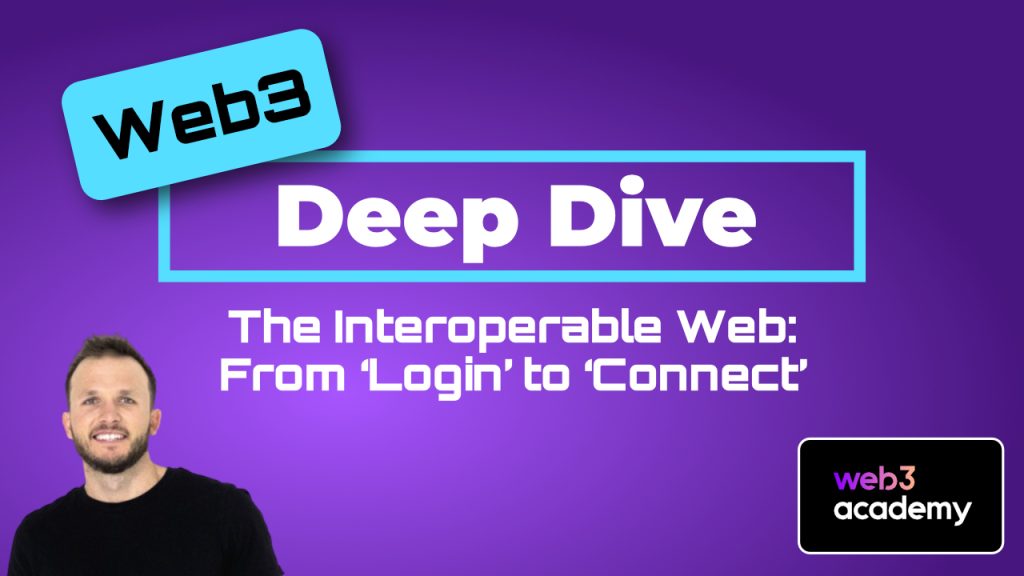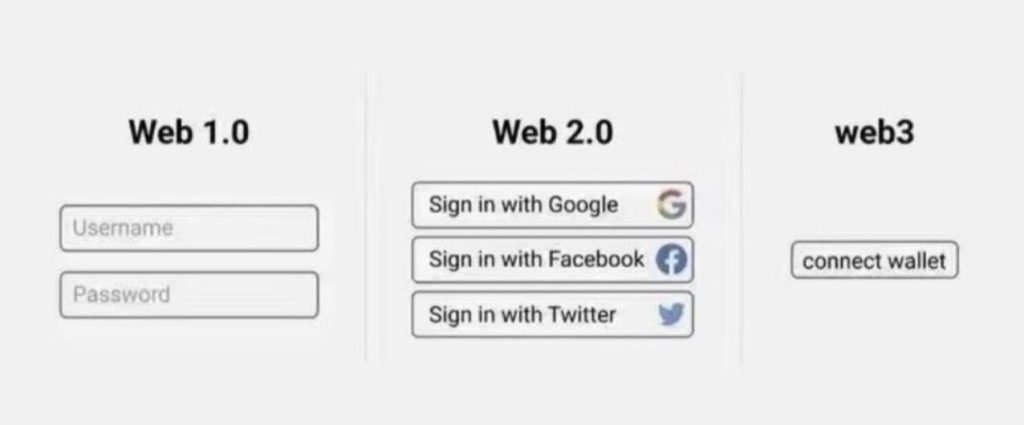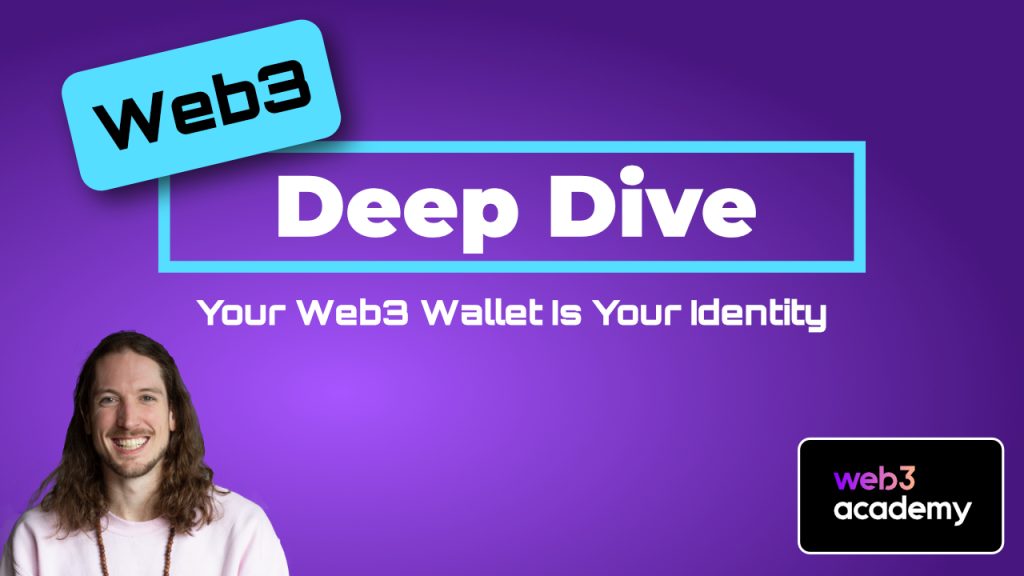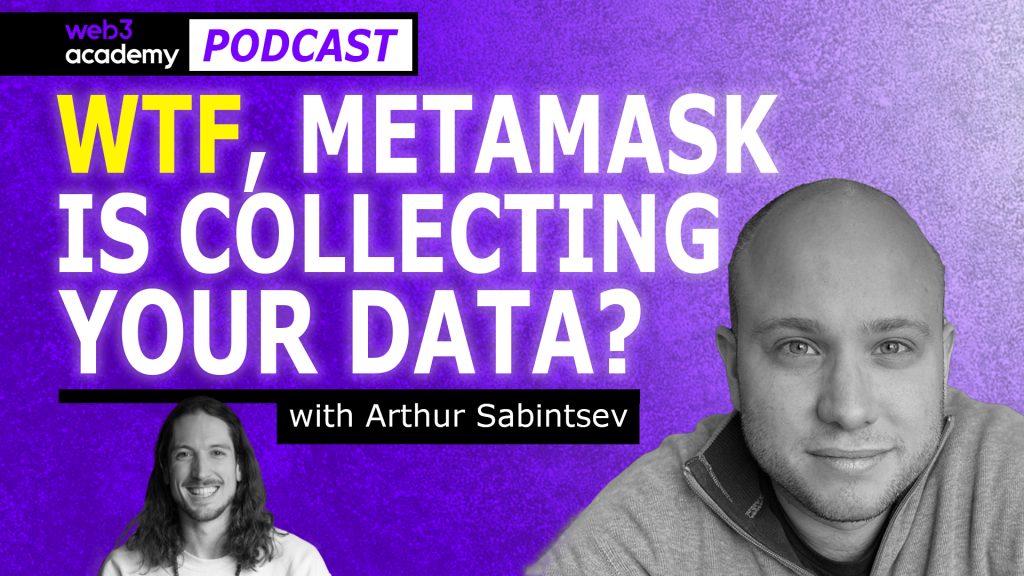
The Interoperable Web: From ‘Login’ to ‘Connect’
Gm DOers!
Today we are exploring the future of the internet.
We’re diving deeper into how Web3 is fixing one of (if not the most) annoying problem of the internet… 100’s of account logins!
I wrote an article for Exodus on how the internet is becoming interoperable and changing from what we know as “Login/Create An Account” to “Connect/Create Your Wallet”.
Not only is there a 10x improvement on UX here, but also a massive game changer in terms of users owning their own data.
Let’s dive into it below!
– Kyle
FYI: You can also watch the episode below, or listen on your favorite platform Spotify | Apple Podcast | YouTube
How Web3 will make the idea of “logging in” redundant
The internet took a wrong turn at some point in its development.
It became a siloed network whereby every application and platform was left to build and manage their own account and login systems for users.
There’s only one of me, yet I have 100s of accounts and profiles across the internet. As a result, we’re all left trying to remember 100s of passwords and then verifying who we are with SMS, authenticator apps, personal verification questions and alternative emails.
Even worse is when we’re forced to share our electrical bills and upload a selfie holding our drivers license and written word on paper… Is the internet really progressing or are we going backwards here?
There’s gotta be a better way!
There is a better way. It’s called Web3 Interoperability
Currently, there are 10s of thousands of developers building out a new iteration of the internet called Web3. They are reconstructing the backend infrastructure so that the internet becomes permissionless, censorship resistant, trustless and, as we’ll discuss in this article, interoperable and composable.
In Web3, we will no longer “log in”, we will “connect”.
In Web2 we rent our profiles and accounts from the applications we use
We are at the mercy of the corporation who owns the application and take on the risk that they could block or restrict our account whenever they please. This is also true of the “assets” we have within the applications. Our images, personal data, followers and content are all owned by the application, rather than the user.
This is because as users of the internet, we don’t have our own profile or account for the internet. That part of the internet was never built. Instead we’re forced to create new accounts everytime we use an application. In the physical world this would be akin to having to put on a certain outfit everytime we enter a store, and then leaving that outfit there when we leave.
Before diving into the benefits or how this may work, it’s important to note that this technology already exists, albeit in a very nascent form. These accounts or profiles mentioned above are in the form of a non-custodial crypto wallet like MetaMask or Phantom crypto browser extensions, which you may already use today.
These crypto browser extensions are different from a crypto account on something like Coinbase or Binance as they are non-custodial. Meaning, the wallet is not owned by any corporation or application, not even the company who built the wallet and it is not tied to any one application. No one can alter, block or restrict a non-custodial wallet. Whereas your Coinbase or Binance account is simply an account inside an application, the same as your Facebook account.
How Web3 Wallets Will Work In the Future
For a user to begin using Web3 they first need to create a unique wallet (…aka account or profile). This wallet is non-custodial, exists only on your specific device and can be recovered only through some sort of biometric screening or social recovery of friends and family (today this is the equivalent to memorizing a 12-24 seed phrase, but I’m pretty confident that UX won’t last).
In this wallet you can update any personal information you choose, you can upload a unique avatar (a verified NFT that you own), connect a decentralized domain name (website/naming service owned and controlled by you), load the wallet with any digital assets you please as well as control what data you share publicly with any application or individual you interact with.
Once this is set up, whenever you want to use the internet, you simply log into this wallet and then move in and out of applications. All the information mentioned above moves with you from one application to another and anything you accumulate (followers, 5 star ratings, testimonials, rewards, etc.) or purchase (NFTs, digital goods, skins in games, etc.) within an application can move with you out of one application and into the next.

This is true interoperability and what the internet needs to create digital experiences more like the real world. Let’s take a look at some of the implications here:
User Experience and Ownership With Web3 Wallets
- Users will only need to “login” to 1 account moving forward, the rest they will simply connect to.
- If required in the future (we’ll see how regulations unfold), you only need to verify or KYC (know your customer) your identity once. A new cryptographic technology called Zero-Knowledge Proofs will allow you to verify that you are the unique human you say you are, without actually providing any personal information whatsoever.
- Moving from one application to another becomes frictionless. Imagine your Twitter followers can be ported over to your Instagram seamlessly (Similar to how email works across gmail, outlook, etc.)
- Payments become seamless and without the need for trusted intermediaries across any application (ie. stripe, paypal, etc.) as your “bank account” is simply part of your non-custodial wallet.
- You own and custody all of your internet assets (similar to physical custody of cash or your passport) including, but not limited to: digital assets, data, identity, followers, personal/business ratings (think Airbnb or Uber) etc.
- Your privacy settings, notifications and other unique design or functionality you desire while using the internet may also be interoperable across each application.
- You control what personal or activity data applications or other users can see or use. One early example of this is the Brave Web Browser, where users can select if they want to receive ads from third parties, and are paid in cryptocurrency if they choose to do so.
- Since big corporations and governments will no longer have the ability to freely track and store your data, in the future you may have the opportunity to sell your data to them instead.
As we can see from the list above, this technology offers users more than just a simple login experience. Web3 puts control and ownership into the hands of the users and forces the corporations to do what’s best for the users. If they choose not to, users can simply move to a competitor with essentially no friction.
I believe that this will have a massive impact on the relationship that businesses will have with their customers. Ultimately, creating a better user experience across the internet and potentially a more fair and community-driven digital experience.
Kyle Reidhead
Founder of Web3 Academy & Impact Digital Marketing
Twitter
Join The Web3 Academy Discord Community
An exclusive NFT-gated community for Entrepreneurs, Creators and Marketers to stay on the forefront of Web3 Innovation! The Web3 Academy community NFT is FREE but you need to first apply below and then claim your NFT to join the Discord.

We’re always looking for me Web3 DOers to join our community 🤝
Click Here To ApplyWant Your Writing Featured in Web3 Academy?
Interested in publishing your article in Web3 Academy’s newsletter which goes out to a passionate community of Web3 builders, creators, marketers, and entrepreneurs? You can!
We want to share content from our community and get you in front of our broader audience.Here’s our guidelines to submit:
- It must be original work
- It must be related to Web3 and useful for entrepreneurs, creators and/or marketers
- It cannot be shilly or promotional








